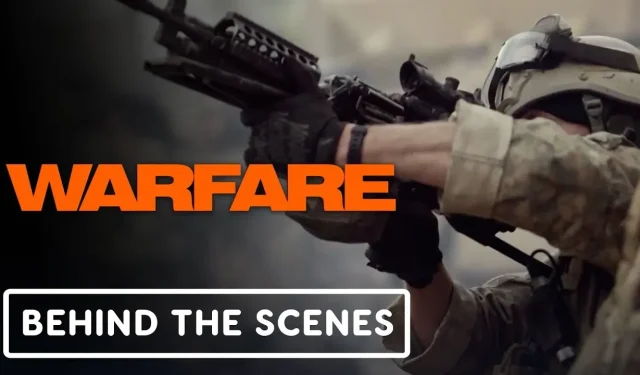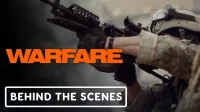In an exclusive look at A24’s upcoming film WARFARE, this behind-the-scenes feature explores the intricate details of filmmaking through the eyes of its creators and cast. Directed by veterans Ray Mendoza and Alex Garland, WARFARE presents a gripping narrative about American Navy SEALs operating in insurgent territory, offering a fresh perspective on modern conflict. This article delves into the key insights shared by filmmakers and actors, highlighting what makes this film a significant addition to the war drama genre.
The Vision of WARFARE: Crafting a Realistic Narrative
Ray Mendoza, an Iraq War veteran, alongside acclaimed filmmaker Alex Garland, has crafted a narrative that stands out in its portrayal of conflict. WARFARE is not just another war movie; it’s an immersive experience that draws upon the real-life struggles faced by soldiers and civilians alike. Through firsthand accounts and meticulous research, the filmmakers have aimed to provide a powerful representation of the psychological and physical dynamics of warfare.
This film’s narrative is unique as it doesn’t merely showcase action but delves deep into the emotional and moral complexities faced by soldiers. By orchestrating a story that unfolds from an Iraqi family’s home, audiences are led to witness the juxtaposition of war’s immediate effects on both the military and civilian populace, emphasizing the human cost of conflict.
Character Dynamics and Authenticity: Insights from the Cast
The cast of WARFARE, which includes talents like Will Poulter, Joseph Quinn, and Cosmo Jarvis, has spoken at length about the importance of conveying authenticity in their performances. Their camaraderie on set has fostered a genuine representation of the brotherhood seen among service members. The actors committed themselves to understanding the emotional and psychological burdens that their characters carry, undergoing rigorous preparation to faithfully represent their roles.
In the process, the actors engaged in discussions with veterans and families affected by the war, allowing them to imbue their performances with real emotion and context. Their dedication not only enhances the film’s authenticity but serves to honor the experiences of those who lived through the complexities of war, bringing depth and resonance to the storytelling.
A Film with a Purpose: The Cultural Relevance of WARFARE
More than just a cinematic experience, WARFARE seeks to provoke thought and discussion about the implications of modern warfare and its representation in media. This film arrives at a crucial time when understanding the impact of war on society and individual lives is more essential than ever. By highlighting the shared humanity amidst conflict, WARFARE calls for reflection on how we depict military engagements and their consequences in our narratives.
The collaboration between Mendoza and Garland—one a veteran, the other a renowned storyteller—brings a substantial weight to the film, indicating a shift towards more respectful and nuanced portrayals of military stories in cinema. Such films have the potential to create dialogue and foster empathy, skills much needed in today’s polarized environments.
Conclusion: A Call for Engagement and Reflection
WARFARE promises to be a groundbreaking addition to the war drama genre, combining a compelling narrative with a commitment to authenticity. As we anticipate its release, it beckons us to reflect on our perceptions of war and its portrayal in media. How does WARFARE challenge the traditional narratives surrounding conflict, and what conversations do you think it will inspire among viewers? Engage with us in the comments as we explore this vital topic further.
https://www.youtube.com/watch?v=ONTf4IqhfNA


